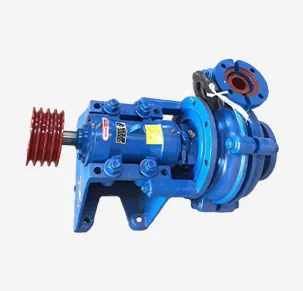English
- Afrikaans
- Albanian
- Amharic
- Arabic
- Armenian
- Azerbaijani
- Basque
- Belarusian
- Bengali
- Bosnian
- Bulgarian
- Catalan
- Cebuano
- Corsican
- Croatian
- Czech
- Danish
- Dutch
- English
- Esperanto
- Estonian
- Finnish
- French
- Frisian
- Galician
- Georgian
- German
- Greek
- Gujarati
- Haitian Creole
- hausa
- hawaiian
- Hebrew
- Hindi
- Miao
- Hungarian
- Icelandic
- igbo
- Indonesian
- irish
- Italian
- Japanese
- Javanese
- Kannada
- kazakh
- Khmer
- Rwandese
- Korean
- Kurdish
- Kyrgyz
- Lao
- Latin
- Latvian
- Lithuanian
- Luxembourgish
- Macedonian
- Malgashi
- Malay
- Malayalam
- Maltese
- Maori
- Marathi
- Mongolian
- Myanmar
- Nepali
- Norwegian
- Norwegian
- Occitan
- Pashto
- Persian
- Polish
- Portuguese
- Punjabi
- Romanian
- Russian
- Samoan
- Scottish Gaelic
- Serbian
- Sesotho
- Shona
- Sindhi
- Sinhala
- Slovak
- Slovenian
- Somali
- Spanish
- Sundanese
- Swahili
- Swedish
- Tagalog
- Tajik
- Tamil
- Tatar
- Telugu
- Thai
- Turkish
- Turkmen
- Ukrainian
- Urdu
- Uighur
- Uzbek
- Vietnamese
- Welsh
- Bantu
- Yiddish
- Yoruba
- Zulu
Telephone: +86 13120555503
Email: frank@cypump.com
Oct . 08, 2024 05:27 Back to list
understanding the functionality and applications of impeller ...
Understanding the Functionality and Applications of Impellers
Impellers are critical components in a wide variety of fluid systems, playing a vital role in the movement of liquids and gases across different industries. Their design and functionality are integral to the efficiency and efficacy of pumps, compressors, and turbines, among other devices. Understanding how impellers work and their applications can provide insights into their importance in both industrial and commercial settings.
At its core, an impeller is a rotating component that imparts energy to a fluid, causing it to flow. The mechanism operates on the principles of fluid dynamics, where kinetic energy is converted into potential energy, allowing fluid movement through a system. Impellers can be classified into several types, including centrifugal and axial impellers, each serving specific purposes based on their design and the required flow characteristics.
Centrifugal impellers, for example, are designed to increase the velocity of fluid, transferring it outward from the center through rotational force. This type of impeller is commonly used in water pumps and various industrial applications where high flow rates at low pressure are necessary. On the other hand, axial impellers are characterized by their ability to move fluid in a parallel direction to the impeller shaft, making them suitable for applications requiring high flow rates at higher pressures, such as in hydroelectric plants and aircraft engines.
understanding the functionality and applications of impeller ...

The applications of impellers span numerous sectors, including automotive, aerospace, chemical processing, and HVAC systems. In the automotive industry, impellers are essential for cooling systems and fuel pumps, ensuring optimal engine performance. In aerospace, they are crucial for compressors that generate thrust and enhance efficiency in jet engines. Furthermore, in chemical processing, impellers are used in reactors and mixers to facilitate blending and reaction processes.
Moreover, advancements in technology have led to the development of more efficient and adaptable impeller designs. Computational fluid dynamics (CFD) tools allow engineers to simulate and optimize impeller performance, facilitating the creation of custom designs tailored to specific operational requirements. This capability not only improves efficiency but also reduces energy consumption and operational costs across various applications.
In conclusion, impellers are vital components that significantly influence the performance of fluid systems across many industries. Their diverse designs and functionalities make them indispensable in enhancing efficiency and flow in applications ranging from water management to advanced aerospace engineering. As technology evolves, the ongoing refinement of impeller designs continues to push the boundaries of what is possible in fluid dynamics, ensuring that industries can meet the challenges of tomorrow with greater efficacy.
-
ISG Series Vertical Pipeline Pump - Chi Yuan Pumps Co., LTD.|Advanced Hydraulic Design&Energy-Efficient Solutions
NewsJul.30,2025
-
ISG Series Vertical Pipeline Pump - Chi Yuan Pumps Co., LTD.
NewsJul.30,2025
-
ISG Series Vertical Pipeline Pump - Chi Yuan Pumps Co., LTD.|energy-efficient fluid handling&industrial durability
NewsJul.30,2025
-
ISG Series Vertical Pipeline Pump - Chi Yuan Pumps | Advanced Engineering&Industrial Efficiency
NewsJul.30,2025
-
ISG Series Pipeline Pump - Chi Yuan Pumps | High Efficiency, Energy Saving
NewsJul.30,2025
-
ISG Series Vertical Pipeline Pump-Chi Yuan Pumps|High Efficiency&Reliable Performance
NewsJul.29,2025










